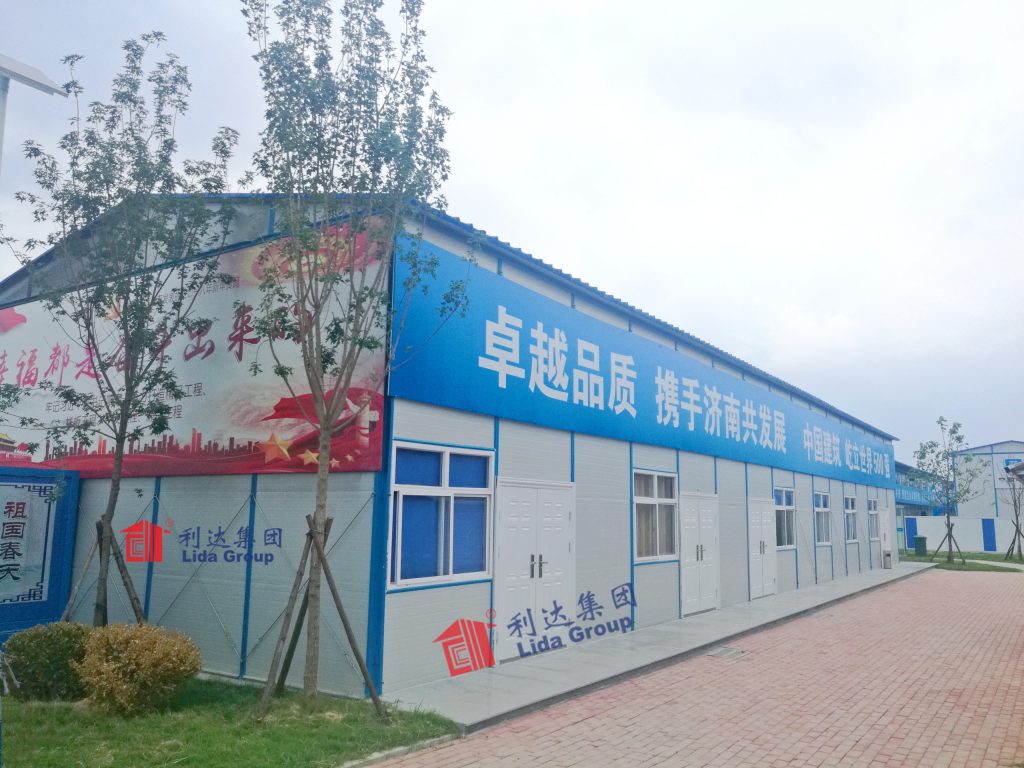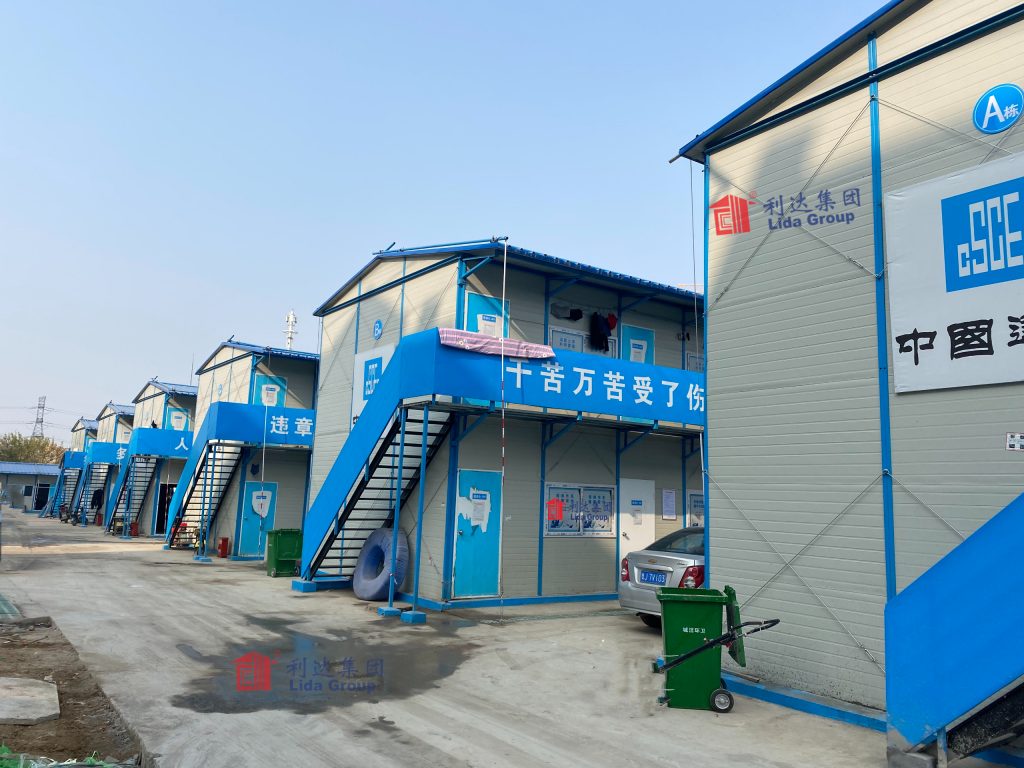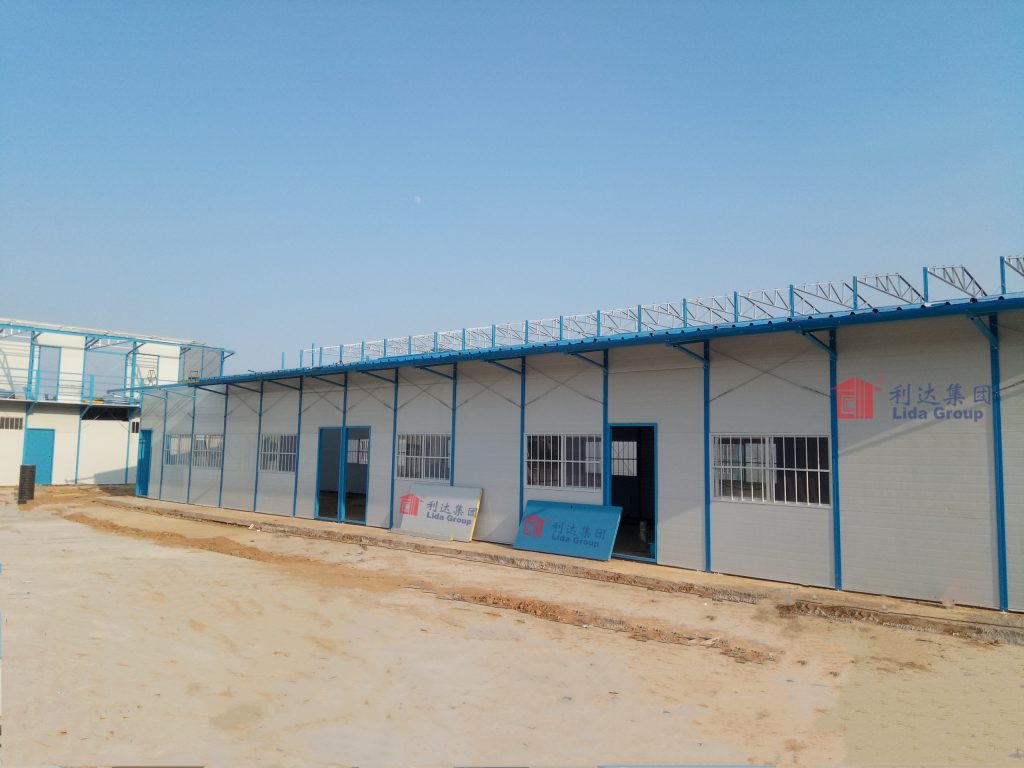Lida Group Unveils Game-Changing Technology for Construction Industry
Construction conglomerate Lida Group recently unveiled new technology that could dramatically transform the construction industry. The technology streamlines the installation process of prefabricated structures made with composite sandwich wall panels, allowing buildings to be erected much more rapidly than with traditional construction methods. Lida Group executives and industry experts say this innovation has the potential to revolutionize commercial and residential construction worldwide.
At a media event held at their research and development facility, Lida Group demonstrated how their new system works. Prefabricated wall, floor and roof panels are made of two thin outer layers of fiber-reinforced polymer bonded to a thick inner core of lightweight, high-strength insulating foam. These composite sandwich panels are extremely durable, weather resistant, fireproof and provide excellent thermal and acoustic insulation.
Traditionally, installing prefabricated structures made with these types of panels is still a time-consuming process that requires heavy lifting equipment and many workers on site. Panels must be carefully maneuvered into place and secured with screws or adhesive. But Lida Group’s breakthrough technology completely automates and streamlines this installation process.

Their system utilizes a walk-behind robot equipped with a powerful multi-jointed robotic arm and vacuum gripping mechanism. The robot is programmed with CAD/CAM files of the structure’s frame. It automatically locates and picks up each pre-cut composite panel from a delivery truck using its vacuum grips. The robot’s vision and positioning systems ensure high precision as it carries panels into place on the frame.
Once in position, the robot operates a high-pressure epoxy injector to instantly bond the panel securely to the frame. The entire process from pick-up to placement and bonding takes just minutes for each panel. With the speed and precision provided by the robotics, an entire building frame can essentially be “clicked together” in a day, compared to weeks using traditional methods.

“This technology will disrupt construction as we know it,” proclaimed Lida Group CEO Ziwen Mu at the event. “For the first time, we are able to achieve the simplicity and rapid construction of modular and mobile homes, but applying it to larger permanent structures. Buildings that previously took months to erect can now be thrown up in a matter of days.”
According to Mu, the key advantages of Lida Group’s composite panel system combined with its robotic installation process include:
– Speed – Structures can be erected 3-10 times faster than traditional building methods. This drastically reduces construction timelines and costs.
– Safety – The robot handles all heavy lifting and maneuvering of panels, eliminating dangerous manual labor. Worksites are cleaner and safer without workers having to climb scaffolding.
– Precision – The robotic arm and vision systems ensure perfect alignment and placement of each panel for tight sealing and insulation. Buildings have superior tolerances and airtight envelopes.
– Sustainability – Composite panels have a long lifespan and can be fully recycled at end-of-life. On-site construction waste is minimized. Structures use 30-50% less energy for heating and cooling over their lifetimes.
– Scalability – The walk-behind robot is lightweight and portable enough to be used on a wide range of residential and commercial job sites. Larger robot models are in development for extra high or hazardous work.
– Cost Savings – Labor and material costs are reduced 30-50% compared to traditional building. Build-outs can be completed in half the time for much lower total costs.

Industry experts have praised Lida Group’s innovation. “This technology overcomes many of the limitations that have held back widespread adoption of prefabricated and modular construction,” said Andrew Cribb, Dean of the School of Architecture and Construction Management at a top Chinese university. “Prefab panels have fantastic environmental and durability benefits, but installation was still too slow and cumbersome. Lida Group’s robotics have truly solved this challenge.”
Lida Group is currently conducting trials of their system on both residential and commercial pilot projects. Their research indicates the technology is capable of scaling to construct a standard 4-story apartment building in just 5 days. Mu says after concluding trials later this year, the company plans to partner with developers, general contractors and panel manufacturers to quickly roll out the technology worldwide.
Analysts project the global market for prefabricated and modular construction could reach $140 billion by 2028 as sustainability and efficiency concerns drive industry shifts. Lida Group’s panel installation robotics could be the catalyst that propels this prefab revolution. By making composite sandwich panel construction a faster, cheaper and safer alternative to traditional building methods, their innovation removes a key barrier holding back widespread industry adoption of off-site manufacturing techniques.

Industry experts agree the long term impacts of Lida Group’s technology could be enormous. Beyond speeding individual projects, their system enables fundamental changes to real estate business models. Panels can now be mass-produced in controlled factory environments and then assembled on-site with robotics instead of relying on weather-dependent and labor-intensive job sites. This shift could accelerate development of affordable and workforce housing, pop-up offices and retail, temporary emergency shelters and more. Entire new prefabricated building categories may emerge.
Ziwen Mu concluded his presentation by emphasizing Lida Group’s commitment to the technology’s responsible scaling and commercialization. “Our vision is to help meet the vast and urgent demand for more sustainable, affordable and rapidly deployable housing and infrastructure worldwide,” he said. “By standardizing construction processes, minimizing waste and maximizing renewable materials, we believe our technology can meaningfully contribute to decarbonizing the real estate sector. It’s an honor to lead this industry transformation.”
In summary, Lida Group’s new robotic composite panel installation system represents a game-changing innovation for construction. By automating and streamlining the assembly of prefabricated buildings, their technology promises to drastically reduce timelines and costs while improving quality, sustainability and worker safety. If successful market adoption occurs as projected, this breakthrough could revolutionize global building practices, help address severe housing supply constraints, and support transitions towards more efficient, off-site manufacturing. Lida Group is positioned to become a leader enabling the Prefabricated construction revolution while guiding its responsible scaling for maximum societal benefit. Their technology unveiling has generated tremendous excitement about new potentials for the future of the built environment worldwide.

Related news
-
Discount Prefabricated Prefab Light Industry Commercial Metal Steel Structure Frame Container Hotel Apartment Workshop Construction Building
2024-09-05 14:34:49
-
Customized Prefabricated Engineered Steel Structure Workshop Warehouse Hangar Showroom Supermarket Building
2024-09-04 13:01:05
-
High Rise Commercial Wholesale Modern Prefabricated Light Heavy Structural Steel Structure Frame Building Storage Engineering Workshop
2024-09-05 11:58:25
contact us
- Tel: +86-532-88966982
- Whatsapp: +86-13793209022
- E-mail: sales@lidajituan.com


